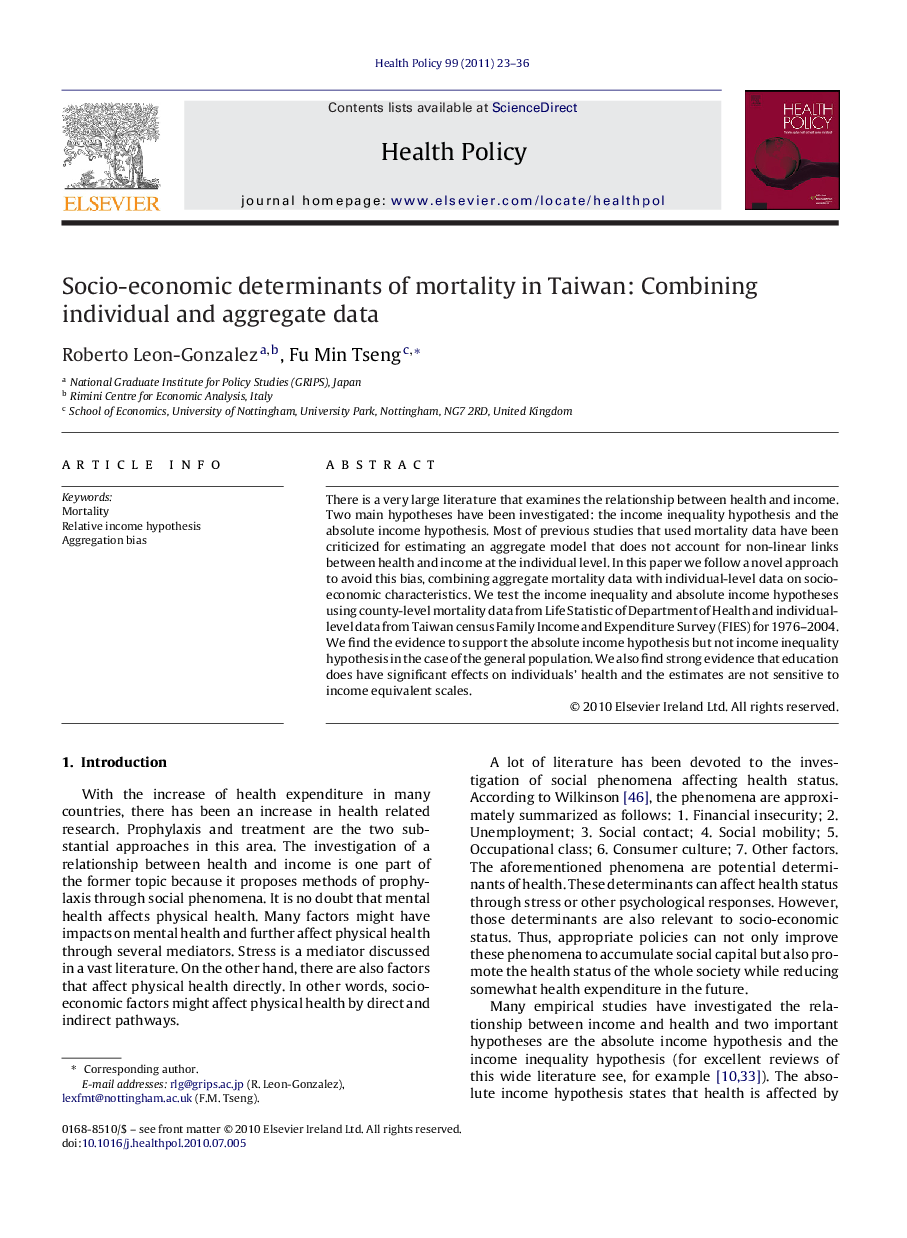| Article ID | Journal | Published Year | Pages | File Type |
|---|---|---|---|---|
| 4198183 | Health Policy | 2011 | 14 Pages |
There is a very large literature that examines the relationship between health and income. Two main hypotheses have been investigated: the income inequality hypothesis and the absolute income hypothesis. Most of previous studies that used mortality data have been criticized for estimating an aggregate model that does not account for non-linear links between health and income at the individual level. In this paper we follow a novel approach to avoid this bias, combining aggregate mortality data with individual-level data on socio-economic characteristics. We test the income inequality and absolute income hypotheses using county-level mortality data from Life Statistic of Department of Health and individual-level data from Taiwan census Family Income and Expenditure Survey (FIES) for 1976–2004. We find the evidence to support the absolute income hypothesis but not income inequality hypothesis in the case of the general population. We also find strong evidence that education does have significant effects on individuals’ health and the estimates are not sensitive to income equivalent scales.
